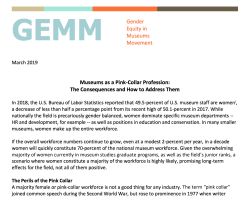Where will you find your 10,000 hours?
Posted: January 23, 2014 Filed under: Leadership, Leadership Development, Leadership Training | Tags: K. Anders Ericsson, Malcolm Gladwell 3 Comments In our experience few people are ambivalent about Malcolm Gladwell. (If you’ve been in an isolation tank and managed to miss his meteoric publishing success, he is the author of Outliers, Blink, among others, and most recently David & Goliath.) Gladwell’s name came up in our book Leadership Matters in a chapter called “How Do We Know What We Know?” There we elucidated the qualities our group of 36 history and cultural museum leaders share. One of those characteristics was experience, and more specifically, the value of variety and perseverance when it comes to experience. What does this have to do with Gladwell? Quite a bit as it turns out. In his book Outliers he has a chapter on what he calls the 10,000 hour rule. In it, Gladwell expounds on research by K. Anders Ericsson, now at the University of Florida, on the differences in talent between pianists. Ericsson wanted to know why among people of similar natural abilities, some became gifted amateurs, while others took to the concert stage.
In our experience few people are ambivalent about Malcolm Gladwell. (If you’ve been in an isolation tank and managed to miss his meteoric publishing success, he is the author of Outliers, Blink, among others, and most recently David & Goliath.) Gladwell’s name came up in our book Leadership Matters in a chapter called “How Do We Know What We Know?” There we elucidated the qualities our group of 36 history and cultural museum leaders share. One of those characteristics was experience, and more specifically, the value of variety and perseverance when it comes to experience. What does this have to do with Gladwell? Quite a bit as it turns out. In his book Outliers he has a chapter on what he calls the 10,000 hour rule. In it, Gladwell expounds on research by K. Anders Ericsson, now at the University of Florida, on the differences in talent between pianists. Ericsson wanted to know why among people of similar natural abilities, some became gifted amateurs, while others took to the concert stage.
The answer has to do with practice. It turns out that those who became professional pianists steadily increased their practice time from three hours a week as children to more than double that as teens. By the time they reached their twenties they had practiced approximately 10,000 hours. Ericsson’s and subsequently Gladwell’s point is that what separates the sheep from the goats among the innately talented is time devoted to deliberately learning, honing and practicing increasingly nuanced and difficult music. Let us point out that neither Gladwell nor Ericsson are suggesting that anyone who practices endlessly will become a concert pianist. You need the music gene first.
What does any of this have to do with leadership? We discovered that our group of leaders had their own cache of 10,000 or more hours devoted to developing or advancing their craft. One visited, blogged and wrote about museums for years before becoming a director in her own right; several worked for grant making or consulting firms where every day they dealt with a new cast of characters and a new set of problems. The same is true of one of our leaders who worked in the state legislature and another who began his career as an actor. All these experiences required repetitive decision making at the point of transaction. Even if you think 10,000 is an arbitrary number, know that collectively our leaders took advantage of every situation that offered repeated practice, recognizing problems, evaluating alternatives and providing solutions.
Leaders need to learn to turn on a dime–to pause, pivot, and change at the drop of hat, and to do so with a dose of grace and humility. If you are already a leader, where did you find your 10,000 hours? If you are an aspiring leader, will you be open, courageous, and ready to take advantage of new experiences when they are offered? Let us know.










Some research suggests time isn’t all it takes to reach excellence – see Debunking the Myth of the 10,000-Hours Rule: What It Actually Takes to Reach Genius-Level Excellence:
http://www.brainpickings.org/index.php/2014/01/22/daniel-goleman-focus-10000-hours-myth/
After college, I took a job in DC as a Meeting Planner for a large national association devoted to clinical chemistry, not exactly the “dream job” for a History major, who once thought she would be a teacher. Turns out, that year was probably the best post-college education I could have received. My experience taught me what it really means to work in a fast-paced office, how to handle multiple projects at once, how to work with people from vary different backgrounds and how to quickly get up to speed on a topic with which I was completely unfamiliar. I draw upon those skills every day. I may not have come close to 10,000 hours but doing something so removed from my other life/study/work experiences has been invaluable.
[…] Where will you find your 10,000 hours? […]